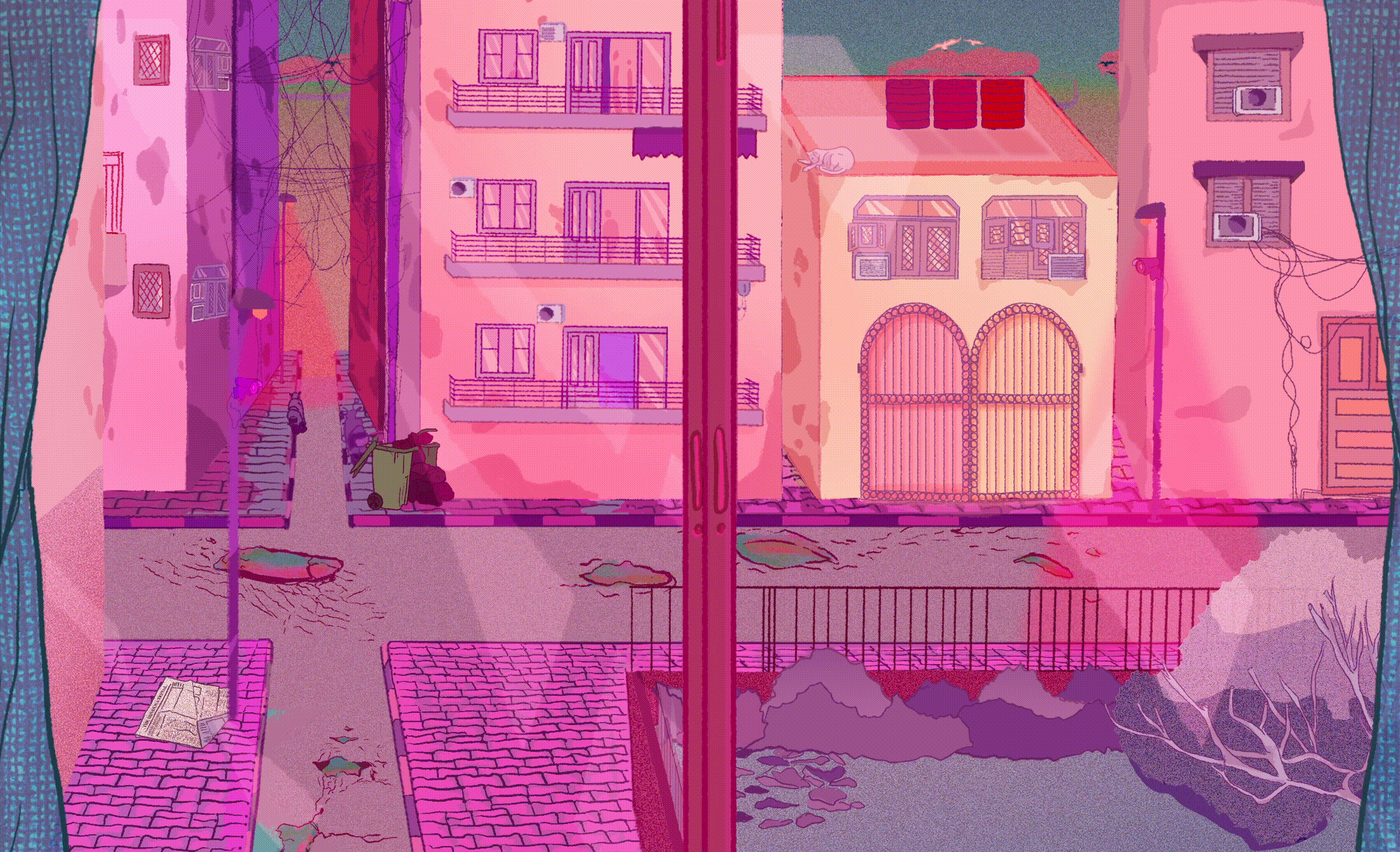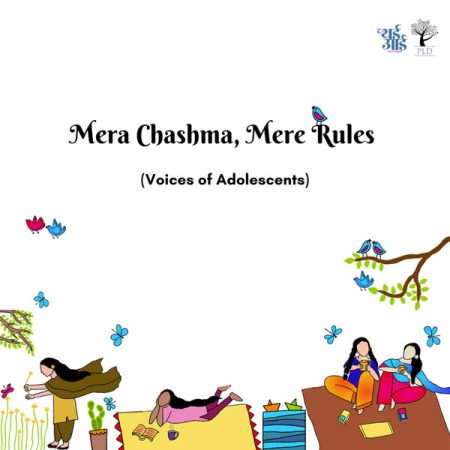Once upon a time, a terrible, uncaring Sadness came into the city and it settled in its every pore. It settled upon the bare walls of its quiet houses, and between the cracks on its uneven pavements, and it sighed in a whispery way, Who cares anymore? It settled in socks, in hats, in puddled potholes of rainbow grease; it settled in people’s eyes, and also between the toes of their feet. It settled in the squawk of the city’s birds, in the rustle of its dried leaves. It settled in the wail of its police cars and the thrum of its air-conditioners and the slap of white paint that shrouded the walls of its universities. It settled with the slump of a tyre gone flat, and it sighed, No one cares what you think or you speak.
The terrible, uncaring Sadness was full of fear and empty of generosities, and so it grew ever more large, afraid but always hungry, until it settled upon the city’s very Breeze.
A city’s Breeze is made of many things. Sometimes, she is still and damp and hardly pleasant, like an embrace that lingers too long, a shaggy panting, a steaming, vaporous heat. Sometimes, however, she dances with dust as she moves from street to street; she carries a hint of rain, a scent of grass, and she makes the city close its eyes, in delight, spinning in the arms of its Breeze.
The city’s Breeze had been these many things and more, but now, with Sadness settled in her every fold, the Breeze began to fail at doing all the things she had done before.
She blew into a corridor and swept up an old newspaper to play with, but Sadness muttered What does it matter? and the newspaper fell back and lay still. The Breeze blew into a park, hoping to shake the fruit from the long and knobbed branches of its trees, but Sadness lay so heavy in her arms, moaning It doesn’t matter that the Breeze could hardly even shake a leaf. The Breeze blew upon the windows of an old house, thinking that the rattle would wake the cats within, but Sadness was so limp, Nobody cares, that the Breeze slipped away, silently.
Finally, the Breeze flew upon a little girl dragging her feet behind her mother, aiming to tickle the back of her neck and make her smile, but Sadness lay so deep in her every puff that when the Breeze reached the girl, she could summon no tickles but only a sigh—so deep and so uncaring that the girl turned around with tears in her eyes.
The Breeze was deflated. She slumped to the ground, and slugged her way into a garbage dump, where she lay upon a pile of onion skins and begged Sadness to leave. “With you in my folds, how shall I be a Breeze anymore? All I shall be is a Sigh!”
But Sadness did not leave, it only shrugged. You do not matter, whispered Sadness, and the onion skins rustled in support of its speech.
“But don’t you see,” wept the Breeze, “I am needed in the city! It is I who bring a smile to the tired man with his burning drink on a rooftop of broken cement.
It is I who play the fool with shuttlecocks after school, play-acting as the dusk descends. I am needed, don’t you see? Who else but I will blow an eyelash down a lover’s cheek, or dance with rain on stormy nights?
What use shall I be, with you on my back?”
But Sadness only closed its eyes and mumbled, Who cares what you do?
“The city cares!” burst the Breeze. “It is I who lighten the feet of those who throng the streets and warn the people, Beware of your mad kings! It is I who carry their words from tumbledown graveyards to sloping avenues, spreading them like so many seeds. It is I—”
The Breeze continued to speak, and Sadness opened half an eye and turned a little on its side, so it creaked. You think you do great things, Sadness whispered, its voice as thin as broken wings, as full of burdens as a child without friends. What you do has no meaning, no end.
“I—” said the Breeze. “That is not what I meant—”
No one cares, said Sadness, and it closed its half-open eye once again, and creaked into the bends of the Breeze.
Sadness fell asleep.
“What you say doesn’t matter,” said the Breeze, trying to spit the words, “no one cares for you!” But she knew that Sadness wasn’t listening, and the more she spoke, the more she began to feel as if her words were only stumbling strays on broken limbs, about to fall and give up trying.
Sadness let out a bored, uncaring snore.
A Breeze can be so many things. A flap, a gust, a wind.
As Sadness slept and snored, the Breeze gathered its lethargic little breaths, one by one, in its wings. Carefully, quietly, she looked for escape. A man came into the garbage dump, wearing a torn shirt, wiping the sweat from his cheeks. The snores gathered in its wings, lifting the Breeze. A small bounce, was it true, in her feet, did she feel? Suddenly, still asleep, Sadness sniffled and sneezed.
Enough! Just enough to lift the Breeze. With all that was tender and fresh in her heart, with all that was trusting and warm in her soul, the Breeze kissed the man with the sweat on his cheeks.
A Breeze can be so many things. A flap, a gust, a wind. So thought the Breeze as she flew on her way. So thought the Breeze as she hoped to be free.
First published by The Third Eye. Also read in Hindi.





